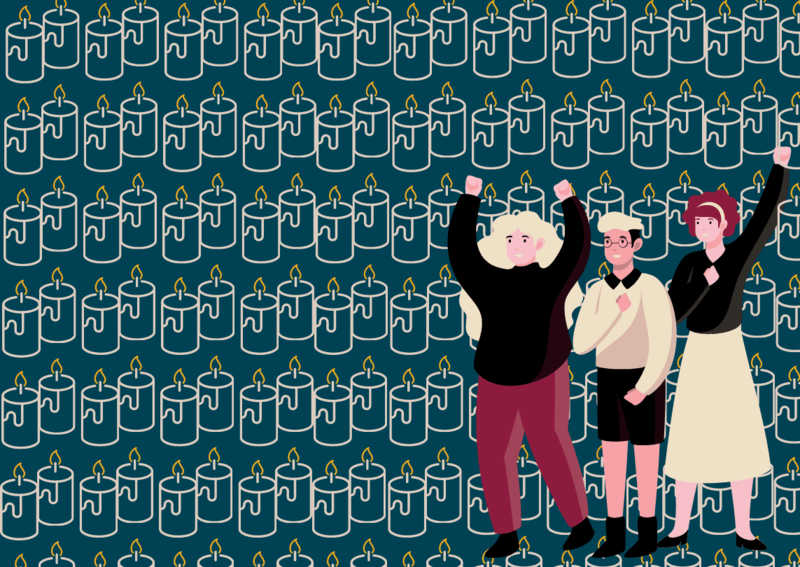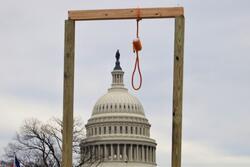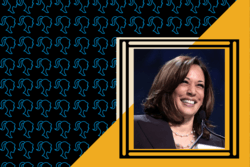Shabbat During the 2020 Election Week: Finding Community and Solidarity
The first week of November—election week in the US—was tense. Though the election violence that many of us feared didn’t materialize during that week, by Tuesday night, it seemed that it would be several days before we’d know who our 46th president would be. After four years of a president whose policies, rhetoric, and demeanor I detest, plus the months I spent phone-banking and fundraising for candidates whom I admire, I was anxious to know who would be leading the country for the next four years.
As the days ticked by without results, I was a nervous mess. I spent hours scrolling through election maps, adding up electoral votes and frantically checking and rechecking the percentage of votes counted in each swing state. I moved through the week on autopilot, unable to stop thinking about the election. I wondered: would President Trump gain another term, unconstrained to wreak havoc on our environment and society? By Friday afternoon, there was still no word. I got ready for Shabbat questioning if I’d hear any word before sundown.
As an Orthodox Jew, I don’t check my phone or use electronics for 25 hours between sunset on Friday and after dark on Saturday. Normally, I relish these media-free hours, but this week (with the future of our country at stake), I wondered how I’d make it through. Entering Shabbat, I’d never felt so out of step with mainstream America.
I didn’t feel disconnected from the rest of the country solely because I couldn't check election results when everyone else could; I also felt disconnected because during the four long years of Trump’s presidency, I’ve been reminded over and over again that I don’t fit many people’s version of a “true” American. As a woman and a member of a minority religion, I’m well aware that the president and many of his supporters view me as inferior. Yet, instead of feeling marginalized that Shabbat as I’d expected, I ended up experiencing the power of the America we live in today.
On Friday night, unable to contain our curiosity anymore, my mother and I went next door and asked our non-Jewish neighbors, who are Mexican Americans, if there was any news. They told me that the election had yet to be called, but later that night they knocked on our door and told us that the news looked positive: Biden was in the lead. The following day, they informed my largely Orthodox Jewish neighborhood of the results: Joe Biden and Kamala Harris had won. The entire neighborhood—Orthodox Jewish Americans and Mexican Americans together—erupted into cheers.
That night, once Shabbat was over, I sat with my family and watched Kamala Harris’s speech. She said, “I may be the first woman in this office, but I will not be the last.” She spoke directly to the youth of America, reminding us that politicians don’t have to look like the stereotypical white men I’ve come to expect in office. She talked about being a woman and being mixed-race, identities which are underrepresented in positions of power. Listening to Kamala Harris speak, it hit me that the long election was finally over. A new chapter in American history was about to begin. And, I realized, I was free to be a part of it. No longer marginal, no longer odd or outside the mainstream. Yes, I’m a woman. Yes, I’m a Jewish American. And for the first time ever, I’m invited to add my voice to the evolving symphony that is the United States.
I recognize that our country has a long way to go to achieve equality. Systemic racism, gender inequity, and oppression still exist in our society. Though America elected a vice president who differs from our traditional image of a politician, the closeness of this election and the violence on the Capitol just weeks ago display the bigotry that is prevalent in our society. Kamala Harris’s election will not magically solve all the country’s problems. But we, as a country, can use her victory to propel us forward. We can use this milestone as motivation to continue our fight for justice. We can use this milestone as motivation to never give up, and as a reminder that no one is marginal or inferior. The anxiety that I—and many Americans—felt during election week and since can be channelled into positive change, so that Kamala Harris’s victory won’t be an anomaly in our political world.
This piece was written as part of JWA’s Rising Voices Fellowship.







